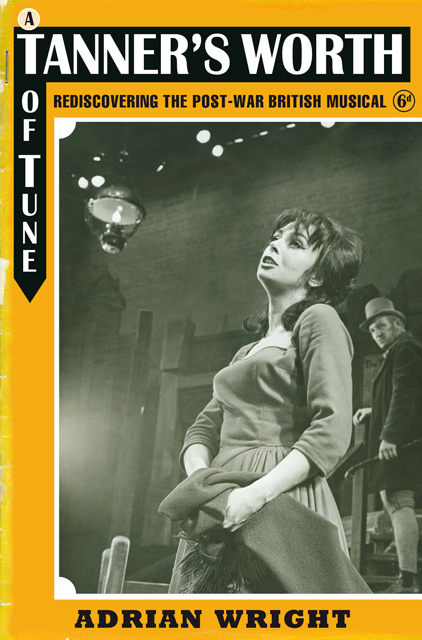Book contents
- Frontmatter
- Dedication
- Contents
- List of Illustrations
- Acknowledgements
- 1 Before and After: Identifying the British Musical
- 2 Delusions of Grandeur: Ivor Novello
- 3 Mastering Operetta: Noel Coward
- 4 Pastiche and Esoteric: Sandy Wilson
- 5 Resounding Tinkles: The plein air Musicals of Julian Slade and Dorothy Reynolds, Geoffrey Wright and Donald Swann
- 6 Away from Home: Adopted British Musicals
- 7 Community Singing: Realism and the British Verismo Musical
- 8 Specifically British: David Heneker, Monty Norman, Julian More and Wolf Mankowitz
- 9 To Whom it May Concern: The British Biomusical
- 10 Fin de Partie: John Osborne, Lionel Bart and After
- Appendix 1 Original Productions of British Musicals
- Appendix 2 Adaptations from Other Works, 1946–78
- Select Bibliography
- Index of Musical Works
- General Index
1 - Before and After: Identifying the British Musical
Published online by Cambridge University Press: 01 March 2023
- Frontmatter
- Dedication
- Contents
- List of Illustrations
- Acknowledgements
- 1 Before and After: Identifying the British Musical
- 2 Delusions of Grandeur: Ivor Novello
- 3 Mastering Operetta: Noel Coward
- 4 Pastiche and Esoteric: Sandy Wilson
- 5 Resounding Tinkles: The plein air Musicals of Julian Slade and Dorothy Reynolds, Geoffrey Wright and Donald Swann
- 6 Away from Home: Adopted British Musicals
- 7 Community Singing: Realism and the British Verismo Musical
- 8 Specifically British: David Heneker, Monty Norman, Julian More and Wolf Mankowitz
- 9 To Whom it May Concern: The British Biomusical
- 10 Fin de Partie: John Osborne, Lionel Bart and After
- Appendix 1 Original Productions of British Musicals
- Appendix 2 Adaptations from Other Works, 1946–78
- Select Bibliography
- Index of Musical Works
- General Index
Summary
Any search for identity must begin with a birth. W. S. Gilbert’s epitome of official pomposity in The Mikado, Pooh-Bah, could trace his ancestors ‘back to a protoplasmal primordial atomic globule’ . Does the British musical go back as far? Cavemen, after all, must have whistled. The beginnings of British musical theatre may well go back to Greek theatre. (Was not the Chorus an essential component of its drama?) In its links with opera, the works of Charles Dibdin and Thomas Linley, of John Gay, the British musical may have found its apotheosis in the nineteenth century when Gilbert’s first collaboration with Sullivan, Thespis, was produced at Christmas 1871. In Britain, the operas of Gilbert and Sullivan were the first most recognisable manifestations of what was to become its nationalistic contribution to the genre. But were they operas? In 1981, when the D’Oyly Carte Opera Company presented its final London season, posters described the G & S operas as ‘The World’s Greatest Musicals’ , and if they were musicals they were certainly the longest-running in the world, D’Oyly Carte having toured them for over a hundred years.
When it comes to the British musical, nomenclature is and always has been under discussion. If we allow that Gilbert and Sullivan did write opera, it makes sense that Richard D’Oyly Carte should have set up an Opera Company to perform them. Before meeting Sullivan, it had anyway seemed that Gilbert was writing something that might become opera, or at least ballad opera. (His Bab Ballads, which now seem almost to be songs without music.) Arthur Seymour Sullivan, that most respected of establishment composers, was beguiled into his collaboration with Gilbert much to the disapproval of many critics who only longed for another weighty oratorio from his pen, a Te Deum to mark the end of the Boer War, or a choral extravaganza for the Leeds Festival choristers to get their teeth into.
- Type
- Chapter
- Information
- A Tanner's Worth of TuneRediscovering the Post-War British Musical, pp. 1 - 13Publisher: Boydell & BrewerPrint publication year: 2010

